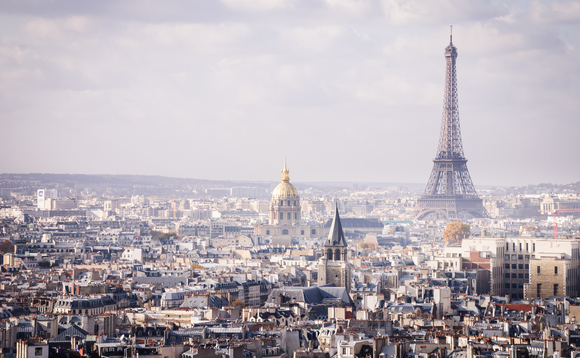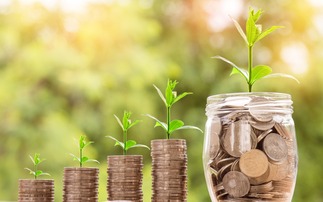Ahead of Paris meeting, world leaders call for increased role for public and private finance as they warn Sustainable Development Goals and climate targets are at risk
Private finance has to play a bigger role in tackling poverty and accelerating the global net zero transition, according to a major intervention today from a group of world leaders orchestrated by French President Emmanuel Macron.
Ahead of a two-day meeting in Paris tomorrow, which is set to explore how to boost flows of climate finance in line with the goals of the Paris Agreement, world leaders backed an open letter that acknowledges how urgent action is needed to boost flows of climate finance if global development and environmental goals are to be met.
Through the meeting Macron and Barbados Prime Minister Mia Mottley are expected to try and build support for the Bridgetown Agenda, which proposes sweeping reforms to multinational development banks and international financial rules to ensure public investment in climate-related projects can better leverage in higher levels of private capital.
Advocates of the reforms maintain they could trigger a huge increase in flows of climate and nature-related finance for the most climate vulnerable countries.
In an encouraging development ahead of the meeting, a group of 13 leaders from industrialised, emerging, and developing economies co-signed today's open letter, which calls for increased public and private finance in support of both the Paris Agreement and Kunming-Montreal Global Biodiversity Framework.
Alongside Macron and Mottley, the statement was backed by the EU's Ursula von der Leyen and Charles Michel, Germany's Olaf Scholz, the UK's Rishi Sunak, Fumio Kishida of Japan, and US President Joe Biden.
Significantly, it was also endorsed by Mohamed bin Zayed Al Nahyan of the United Arab Emirates, who will host this year's COP28 Climate Summit, and leaders from major developing economies such as Brazil's Luiz Inácio Lula da Silva, South Africa's Cyril Ramaphosa, William Ruto of Kenya, and Senegal's Macky Sall.
The letter acknowledges that global development efforts have faced a major setback in recent years through a combination of the covid pandemic and escalating climate impacts.
"An estimated 120 million people have been pushed into extreme poverty in the last three years and we are still far from achieving our United Nations sustainable development goals (SDGs) by 2030," it states. "We should thus place people at the centre of our strategy to increase human welfare everywhere on the globe."
It also recognises that the financial and environmental risks faced by a growing number of countries border on the "existential". "Climate change will generate larger and more frequent disasters, and disproportionately affect the poorest, most vulnerable populations around the world," it states. "These challenges cross borders and pose existential risks to societies and economies."
As such, the group argues reforms are urgently needed to create a global financial system that can "deliver more for the planet".
"The transition to a net zero world and the goals of the Paris agreement present an opportunity for this generation to unlock a new era of sustainable global economic growth," it states. "We believe that just ecological transitions that leave no one behind can be a powerful force for alleviating poverty and supporting inclusive and sustainable development. This requires long-term investment everywhere to ensure that all countries are able to seize this opportunity. Inspired by the historic Kunming-Montreal Global Biodiversity Framework, we also need new economic models which recognise the immense value of nature for humanity."
The editorial does not endorse any specific reforms, but it does stress that increases in both public and private climate finance are needed to put the world on track to meet its climate, nature, and development goals.
It argues that the pledge contained in the Paris Agreement for industrialised nations to mobilise $100bn a year of climate finance "must be met in 2030". And it warns that "no country should have to wait years for debt relief".
It also states that "ambitious reform" of multilateral development banks should be a priority, including measures to enable closer partnerships with philanthropists and private finance.
"Public finance will remain essential to achieving our goals," the editorial states. "But we acknowledge that meeting our development and climate goals, including the fight against hunger, poverty, and inequality; adapting to climate change; and averting, minimising and addressing loss and damage, will require new, innovative, and sustainable sources of finance, such as debt buy-backs, engagement from sectors that prosper thanks to globalisation, and more trusted carbon- and biodiversity-credit markets."
"Achieving our development goals, including climate mitigation, will also depend on scaling up private capital flows," it adds. "This requires enhanced mobilisation of the private sector with its financial resources and its innovative strength, as promoted by the G20 Compact with Africa. This also requires improving the business environment, implementing common standards and adequate capacity building, and reducing perceived risks, such as in foreign exchange and credit markets. This may require public support, as well as sharing reliable data. Overall, our system needs to lower the cost of capital for sustainable development, including through the green transition in developing and emerging economies."
Ultimately, the group insists it is committed to forging a "new global consensus" that can enable a sharp increase in investment in climate and nature-related development projects in developing economies.
The focus on an increased reliance on private capital is likely to face criticism from some countries and campaign groups, which maintain industrialised nations should ramp up direct funding following years of failing to meet the targets set out in the Paris Agreement. But the loose coalition of leaders brought together by Macron and Mottley is adamant sustainable development can only be advanced through a combination of public and private finance.
The intervention came as the International Energy Agency and International Finance Corporation (IFC) today published a joint report detailing how annual clean energy investments in emerging and developing economies will need to more than triple from $770bn in 2022 to as much as $2.8tr by the early 2030s to meet rising energy needs and align with the climate goals set out in the Paris Agreement.
Titled Scaling Up Private Finance for Clean Energy in Emerging and Developing Economies, the report argues that public investments alone would be insufficient to deliver universal access to energy and tackle climate change.
"Increased public funding can be used most effectively in partnership with private sector capital to reduce project risks - a concept known broadly as blended finance," the report states, adding that two-thirds of the finance for clean energy projects in emerging and developing economies outside China will need to come from the private sector. Today's $135bn in annual private financing for clean energy in these economies will need to rise to as much as $1.1tr a year within the next decade if climate and energy access goals are to be met.
"Today's energy world is moving fast, but there is a major risk of many countries around the world being left behind," said IEA executive director Fatih Birol. "Investment is the key to ensuring they can benefit from the new global energy economy that is emerging rapidly. The investment needs go well beyond the capacity of public financing alone, making it urgent to rapidly scale up much greater private financing for clean energy projects in emerging and developing economies. As this reports shows, this offers many advantages and opportunities - including expanded energy access, job creation, growing industries, improved energy security and a sustainable future for all."
Makhtar Diop, managing director at the IFC, warned global climate goals could not be met without a huge surge in clean energy development in emerging and developing economies. "The battle against climate change will be won in emerging and developing economies where the potential for clean energy is strong but the level of investments is far below where it should be," he said. To address the pressing energy demands and emissions reduction goals in emerging and developing economies, we need to mobilise private capital at speed and scale and urgently develop more investable projects."
Want to understand what is going on at the cutting edge of sustainability? Check out BusinessGreen Intelligence - the premier information for professionals focused on the UK's green economy.









